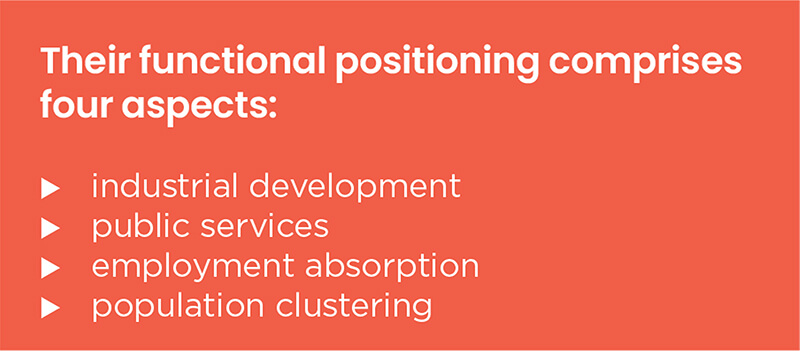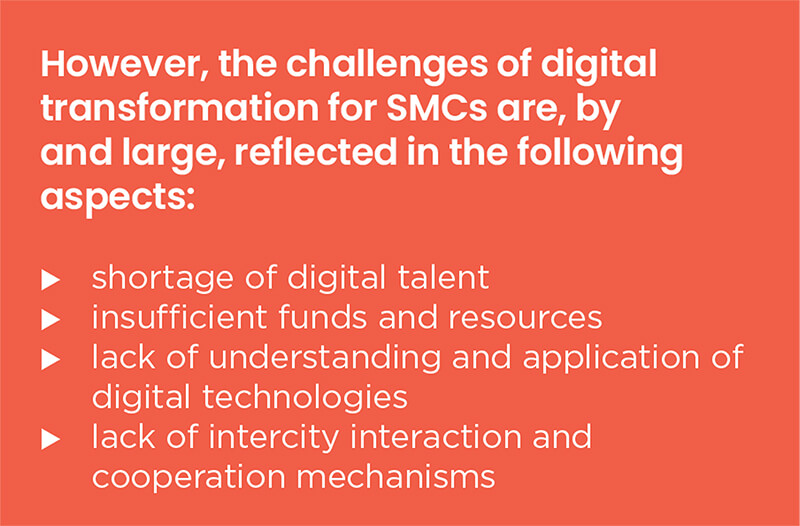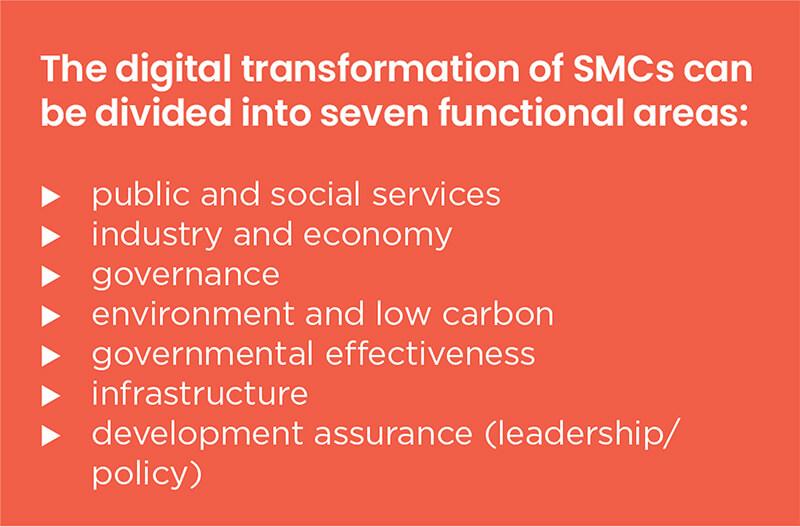The Future of Small Medium Cities in an Era of Hyper Rapid Change
McKinsey estimates more than 20% of the global workforce could operate the bulk of their time away from the office without any impact on productivity

Work, workers and the organisations will evolve to something we have never imagined in the years ahead.
Tremendous forces are radically reshaping the world of work as we know it. Disruptive innovations are creating new industries and business models while destroying old ones. In addition, new technologies, data analytics and social networks significantly impact how we communicate, collaborate and work.
Many of tomorrow's roles and job titles will be the ones we have not even thought of yet. The estimation is that 65% of current jobs will not exist in the future, many of which you can complete from anywhere.
To understand what your workplace will be like in 5, 10 or 30 years out, you must first think about what work will look like. Since most of our past and present economic success is based on the job economy, such thinking represents a serious threat to our future. Even those who do not believe the current economic system can persevere still struggle to articulate viable alternative economic models.
Today, people go to where the work is. In the future, work will go where the skills are, most likely in smaller cities away from major population centres. One only must look at the current world flight from major metropolitan centres to smaller, rural towns.
Driven by COVID-19, people have moved to non-major metropolitan areas where they find cheaper housing with more space for their families and can work happily and efficiently from home. This has driven up real-estate values in non-metropolitan and rural areas. However, on the downside, many of these non-metropolitan areas lack basic digital infrastructure (think: slow and patchy internet).
Furthermore, many SMCs do not have the facilities to handle fast population growth, i.e. schools, hospitals, transport infrastructure and many more. Do not forget that these new workers also desire smart, well-connected housing.
STEM skills (Science, Technology, Engineering, and Mathematics) will be the requirements for future jobs. Nations developing or otherwise operating in a globally competitive job market are moving rapidly toward a digital economy. The Australian Industry (AI) Group is warning that Australia risks falling behind other OECD countries without increasing focus on the skills that can equip future workforces. SMCs must leapfrog the demand by encouraging their education facilities to push out more STEM graduates.
For small and medium-sized cities (SMCs), digital transformation is particularly important. Currently, most SMCs face the challenge of slow incremental development. However, digital transformation can and will disrupt traditional business models, break down geographical and spatial boundaries, and thus create new ways to live in the digital era. This can, in turn, help improve the livelihood, economy, governance and environment of smaller cities and support the conducive integration of people, industry and infrastructure.
Global connectivity, smart-machines new media and the flight from capital cities are just some drivers reshaping how we think about work, what constitutes work and the skills we will need to be productive, global contributors in the future.
The fast-growing economies of Southeast Asia have increased the competition for human capital to new heights, making the process of talent acquisition and retention more of a challenge for human capital teams and recruitment professionals.
Now, and in the future, understanding workforce capabilities, modern methodologies, technology, tools, techniques, processes and obstacles to succeed in human resource management is crucial. SMCs cannot sit on their hands and try and figure it all out. After all, no individual location is an island! Lots of SMCs are trying to get a chip in the game.
Before the COVID-19 pandemic, work-from-home (WFH) or remote working was not particularly popular in most areas of the world. This is because many organisations fail to trust the employees to take on work-from-home for most of the working week. The fact that the great "experiment" largely succeeded is a tribute to the maturity of the digital tools and capabilities available today (think: Zoom, Slack, Teams and others).
The use of these solutions rocketed during the crisis. COVID-19 has pushed companies over the technology tipping point and transformed business forever. Gartner estimates that the use of collaboration platforms alone surged 44% between 2019 and 2021. The future of work will come in many shapes and forms, including hybrid working culture, where employees work from their office desks for a few days a week and can work remotely for the remainder of the time.
McKinsey estimates that more than 20% of the global workforce - although mainly those in high-skilled roles in verticals such as finance, insurance, and IT - could work most of the time away from the office without any impact on productivity. However, organisations must double up on digital transformation to make this a reality. That means expanding beyond one-off investments in new collaboration platforms to initiatives that create fully connected workplace experiences.
Therefore, organisations will need to create a frictionless hybrid working environment, and SMCs need to create the framework to make this possible (i.e. high-speed internet). This change will be entirely enabled by the new digital initiatives - where aside from the social aspects, their employees do not notice any difference between working from home or being in the office.
Automation will be key to succeeding with these initiatives, empowering business users to connect apps and data independently to become more self-reliant while away from the office. Low-code techniques will be essential, having been identified by 42% of business users as critical to their ability to create better-connected employee experiences. This is not just about driving employee productivity but also retaining talent. Home workers expect the same level of connected experience they get in their personal lives at work, wherever that might be!
Successful organisations are built on the productivity and dedication of their employees. So when the pandemic forced offices worldwide to close, employers were understandably nervous. What followed was called the "largest work-from-home experiment" in history. It has reshaped the meaning of "workplace" and transformed employee expectations.
Its impact is still being considered today as many more stories about employees who flatly refuse to return to the office no matter what. If you force them to comply, they will simply up and leave and find a company that parallels their viewpoint.

It is estimated that 65% of current jobs will no longer exist in the future.
Digital transformation
Why does a company need digital transformation? A company may take on digital transformation for several reasons. However, the most crucial reason is basic economic survival. Digital transformation is tough to define because it looks very different for every industry. Yet, in general terms, it is explained as incorporating digital technology into all business areas.
The result fundamentally changes how businesses function and interact with customers. It is a radical rethinking of how an organisation uses technology in conjunction with processes and people to change business performance. Digital transformation requires tremendous cross-departmental cooperation within a company to effectively pair rapid application development models with business-focused philosophies.
COVID-19 has illustrated the importance of adapting quickly to dramatic changes, including disruptions to supply chains, time-to-market pressures and rapidly changing customer expectations. Spending on the digital transformation of business practices, products and organisations has never been more critical for their survival.
UN-Habitat's World Cities Report 2020 points out that urbanisation will remain a driver of global growth. Small and medium-sized cities (SMCs) are an essential part of the urban system, an intermediate level between large cities and rural towns.

This process provides opportunities for SMCs to improve their competitiveness in a society rapidly, economy, governance and the environment. SMCs are becoming important vehicles for digital transformation, and the study of digital transformation models and practices in SMCs has essential social value for the world. The vision is to make SMCs a better place for people to live, work, and play.

The digital transformation of SMCs requires adopting an approach of "commonality and individuality". In addition, the planning and promotion of the digital transformation of SMCs should also consider the differences between SMCs and big cities.

Each area can then be divided into three maturity levels (Phase 1 to 3). In their planning and implementation, SMCs can incorporate their resource endowment, industrial characteristics and development goals and propose their digital transformation based on the various methodological options available to SMCs as they undergo digital transformation.
To realise the digital transformation of SMCs, governments, enterprises, research institutions and citizens need to coordinate and act together. This will not be an individualism exercise but a whole government approach collaborating intimately with industry.

Every organisation must undergo digital transformation to adapt to today’s rapid technological changes and stay relevant.
About the Author

Martin Conboy is well recognised as one of the leading voices of the outsourcing / shared services industry and its role in facilitating outsourcing success throughout the Asia Pacific. Martin was voted into the top five most influential and respected people in the global call centre outsourcing industry in 2014.
Martin Conboy is an accomplished writer and public speaker and has delivered keynote addresses at BPO - ICT and Shared Services conferences in Australia, Bangladesh, China, Hong Kong, India, Korea, Malaysia, Mauritius, the Middle East, The Philippines, Singapore, Thailand and USA.
Martin is a blockchain enthusiast.









.png)